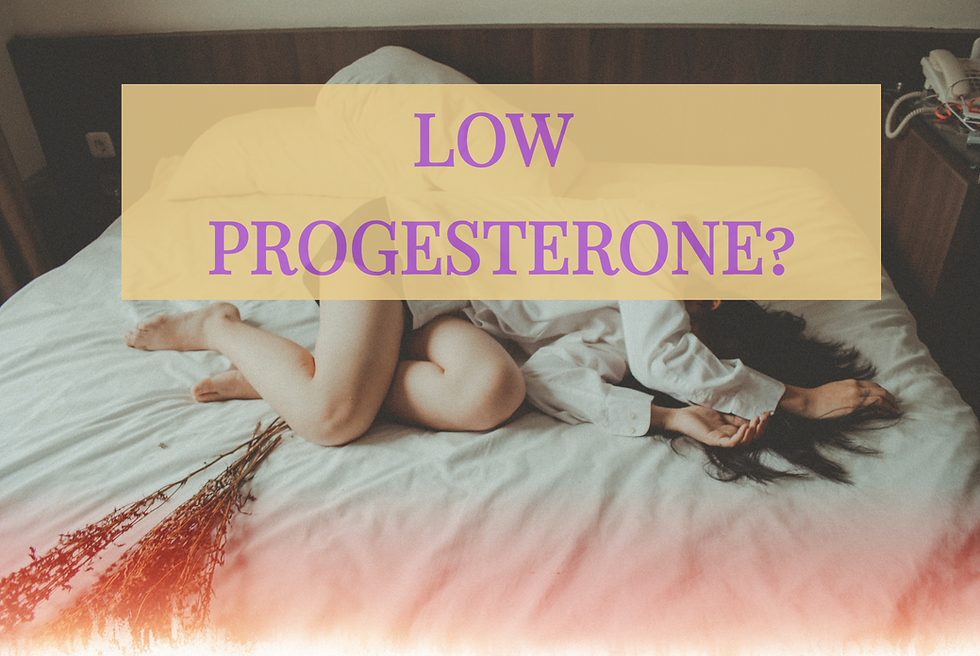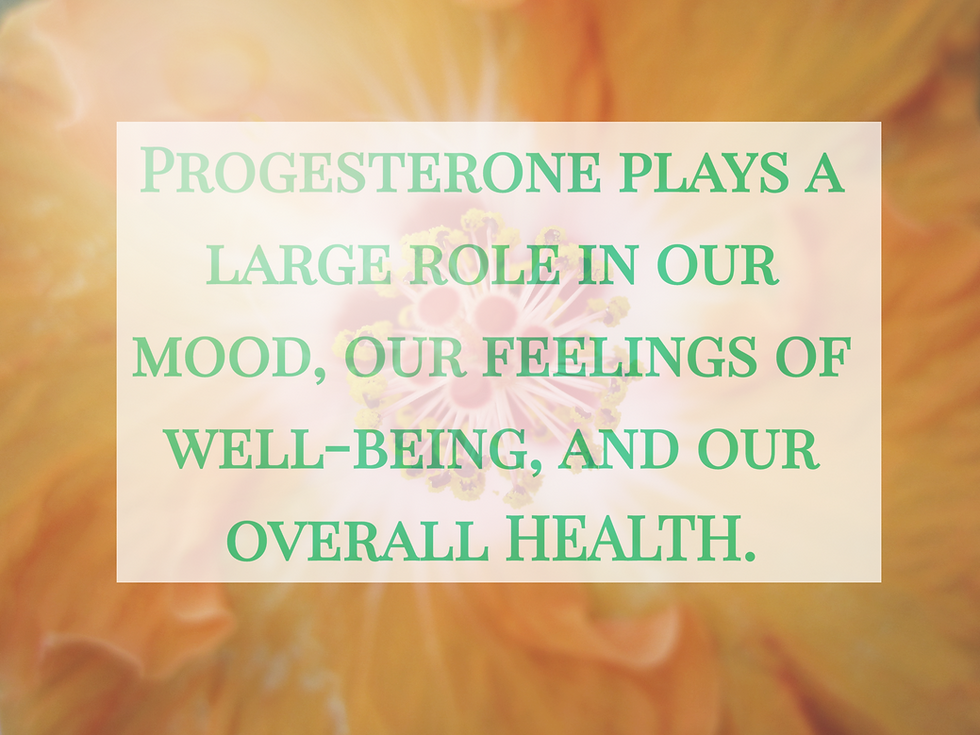
Do you have Low Progesterone you wonder?
Progesterone is a superstar hormone produced by a highly intelligent and efficient gland for women. This gland is called the corpus luteum. During our ovulation women drop an egg to be fertilized. What is left behind is the egg sac which turns into a gland called corpus luteum.
The corpus luteum develops very quickly over 24 hours and then produces progesterone for the female body for the entire luteal phase.
The luteal phase is the second half of the female cycle. The progesterone production lasts roughly 11-14 days from the time the corpus luteum is formed.
If the egg gets fertilized and pregnancy ensues, the corpus luteum goes on to make progesterone for the mother. It does that for the first trimester until the placenta takes over to provide progesterone as well as nutrients and minerals all pregnancy long.
But back to the gland corpus luteum and low progesterone.
Since this gland develops so rapidly it has a HIGH need for
energy (glucose)
structure (protein)
stability and hormone production (fat)
and tons of vitamins and minerals
Which vitamins and minerals you wonder?
Vitamin A, E, C, D, K, B, Copper, Zinc, Selenium, Magnesium, Potassium, to name a few!
When ovulation is missing, progesterone production is lacking and there is an issue with the female’s overall metabolic health, and this carries over into pregnancy.
Progesterone is needed for more than ovulation, and proper levels are important beyond just when we are trying to achieve pregnancy.
Besides the corpus luteum, progesterone receptors have been found in the brain, breast, liver, uterus, nasal passages, lungs, skin, bladder, bones, womb, ovaries and fallopian tubes.

Progesterone plays a large role in our mood, our feelings of well-being, and our overall HEALTH.
Progesterone is especially essential when these issues are present:
PCOS (Polycystic ovary syndrome)
PMDD (Premenstrual dysphoric disorder)
Endometriosis
Anxiety
PMS (Premenstrual syndrome)
Autoimmunity
Thyroid problems (progesterone is also needed for men, although there is very little research on this)
In the words of Dr. Ray Peat: “ In several ways both progesterone and thyroid hormone can be considered primary regulatory hormones. Both of them regulate metabolism directly at the energetic and synthetic levels: both have a normalizing, anti-stress action on the pituitary gland; and each has a promoting action on the other. Both are blocked (and consumed) by stress and promoted by light and good nutrition. Both are nutrients in cultures that eat the whole animal, including ovaries and thyroid, butter, cream and milk contain small amounts of progesterone and shellfish seems to be a good source.”
Low progesterone symptoms manifest in different ways for everybody but it largely looks like:
PMS
Water retention during the luteal phase
Metabolic issues and Hypoglycemia
Anxiety
Constant tension
Rapid Aging and Muscle loss
Insomnia
It even plays a large role in how we respond to blood sugar and blood sugar plays a role in HOW we respond to progesterone.
It has a thyroid supportive effect as well. That’s why in the second half of a woman's cycle the body temperature goes up form 0.5 – 1 degree. And thyroid hormones play a role in insulin sensitivity and how our cells retain and hold onto nutrients.
Unfortunately, stress interferes and dictates HOW we respond to progesterone.
When stress hormones like cortisol and adrenalin are high, the cells cannot respond to progesterone appropriately.
This is why it’s so important to manage stress of any sort. Balancing blood sugar is IMPERATIVE to regulate our hormonal health. We need to eat balanced meals and snacks at all times to provide a stress free environment to our body.
To reiterate, we will not be able to receive the benefits of progesterone that we are making or taking if we are under chronic stress, or our blood sugar is swinging all over the place all day long. Blood sugar swings can go unnoticed behind the scenes as well.
A low carb diet can set back this situation even further. Having regular starch and glucose intake, every 3-5 hours, maximizes the response to Progesterone. Meaning your body will be able to use it.
"Progesterone receptors cannot transport or bind to, a molecule of progesterone if there has been a drop in blood sugar" and "progesterone receptors do not transport progesterone molecules into the nucleus of cells if adrenaline is present".
"We must have a stable blood sugar level, and for that we insist that patients use the three-hourly starch diet. The ideal is that they should eat in a way that does not cause a drop in the blood sugar, because a drop in the blood sugar will stop the utilization of progesterone for seven days" -Once a month: Understanding and Treating by Dr Katharina Dalton.
Low progesterone levels and how to provide proper progesterone production?
Provide the body with an abundance of nutrient dense / bioavailable foods from the right source on a consistent basis. (hint: not grains and vegetables)
Reduce stress by balancing blood sugar with the right amount and balance of protein, carbs and fat.
Become aware of both internal and external stressors and take steps to reduce them.
Factors that can deeply affect progesterone level in your body include:
Sleep
Sunlight
Exercise
Relationships
Stress levels
Therefore, while on a healing journey, we need to pay extra attention to not neglecting our body with intermittent fasting or low carb diets.
For low progesterone level supplementation, the following is important to keep in mind:
Delivery MATTERS. Creams don’t always deliver the same as progesterone stabilized in Vitamin E oil, which is taken orally.
Plant derived sources offer 100% availability compared to synthetic progesterone which can only be utilized 50% by your body.
If your adrenaline and cortisol are elevated it can prevent progesterone from being properly received by the cells. Therefore, get your nutrition in check FIRST.
If you have excessive amounts of estrogen in your tissues, progesterone implementation can lead to mobilization of estrogen. This may appear like an adverse reaction, but could just be your estrogen moving out, which feels like a detox reaction.

Comments